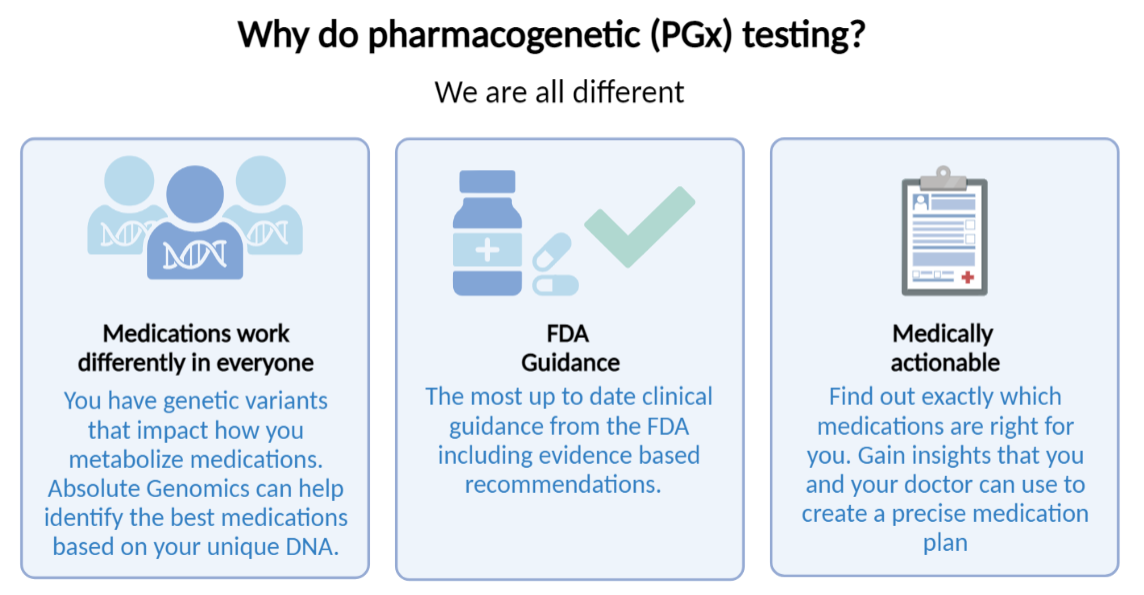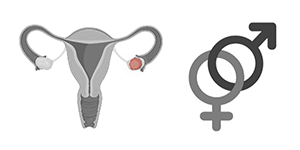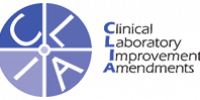STD rates in the U.S. hit a new high for the 6th straight year
State of the Art PGx Testing
Adverse drug reactions are a common occurrence in prescription medications, and they can often be life-threatening. Common medication such as codeine, abacavir or antibiotic gentamicin can have some serious side effects due to the genetics of an individual. In some cases, these reactions can be avoided by using pharmacogenomics testing to determine a patient’s risk for an undesirable response or dangerous effect to medications.

PGX testing is a type of pharmacogenomics testing that can help identify patients who are at higher risk for adverse reactions due to their genes. PGx testing has particular relevance to psychiatric practice. Medication is the standard of care for most debilitating psychiatric illnesses. However, many medications commonly used to treat mental illnesses (i.e., psychotropic medications) have substantial adverse drug reaction and side effect profiles. Thus, clients seeking psychiatric treatment can be particularly susceptible to undesired side effects or adverse events. Unfortunately, such experiences are common, due in large part to the ongoing ‘trial-and-error’ approach to medication prescription. According to this method, prescription choices are guided, initially, by various standards of care and, subsequently, by observations of the client’s response to the medication. This method puts the client at increased risk of suffering adverse drug reactions and side effects. The fact that most psychotropic medications take four to six weeks to show an effect exacerbates this risk. As trial-and-error frequently involves prescription changes, it also leads to considerable healthcare expenditures. By using PGX tests healthcare providers can make better judgment calls about which medications to prescribe and the best dosage for their patients to obtain better health outcomes.
The Absolute Genomics PGx panel is a pharmacogenomic test that analyzes clinically important genetic variations which may impact how your patient metabolizes and responds to certain medications used to treat cardiovascular disease, pain medications, depression, anxiety, ADHD, and other psychiatric conditions.
Clinical Need :
- 99.8% of all individuals have a genotype associated with increased risks to at least one medication
- Genotype differences between individuals can affect at least 50 daily drug doses per 1000 inhabitants.
- Pharmacogenetic testing can maximize the intended use of a medication or treatment
- Reduce adverse drug reactions
- Speed time to achieving the therapeutic benefit of a drug
- Decrease the chance of side effects or dependency
- Using genomics to identify the most appropriate and affordable drug the first time
- Reducing adverse drug reactions early in treatment, thus
- Reducing hospital length of stays
- Reducing hospital readmissions
- Reducing ER visits


~2.5 million Americans suffer from STD infections annually



ABx Advantage
The Absolute Genomics ABx Advantage gene panel is designed to detect major classes of antibiotic resistance. This panel can identify the presence of specific resistance genes that are involved in drug inhibition. The Absolute Genomics ABx Advantage gene panel has 11 antibiotic resistance genes belonging to amino glycosidea β-lactama fluoroquinolonea macrolidea tetracyclinea vancomycina and multi-drug resistance classifications. The data is used for providing antibiotic resistance stewardship via Arkstone Medical Solutions. The OneChoice report powered by Arkstone Medical Solutions for the ABx Advantage gene panel converts PCR data into simple interpretations for physicians to help them make better treatment decisions. This technology is a combination of softwarea artificial intelligencea and human expertise.
- The antimicrobial report contains a unique ArkScore to help prescribers make informed decisions.
- The antimicrobial decision engine combines machine-learning artificial intelligence with decades of deep infectious disease expertise to guide physicians to a singular treatment regimen that targets the most relevant infection with the lowest risk to the patient.
- ArkScore describes the level of antimicrobial resistance expressed in organisms.
- ArkScore provides the most effective treatment with the least risk of adverse events resulting in the reduction of unnecessary use of broad-spectrum antibiotics
Extensive Panel List

Bacteria
- Atopobium vaginae
- BVAB2
- Chlamydia trachomatis
- Neisseria gonorrhoeae
- Gardnerella vaginalis
- Haemophilus ducreyi
- Mobiluncus curtisii
- Mobiluncus mulieris
- Mycoplasma genitalium
- Mycoplasma hominis

Fungi
- Candida albicans
- Candida parapsilosis
- Candida krusei
- Candida lusitaniae
- Candida tropicalis
- Candida glabrata

Parasite
- Trichomonas vaginalis

Viruses
- HSV1
- HSV2
lorem ipsum Panel List
- XYZ
- XYZ
- XYZ
- XYZ
- XYZ
- XYZ
- XYZ
- XYZ
- XYZ
- XYZ
- XYZ
- XYZ





